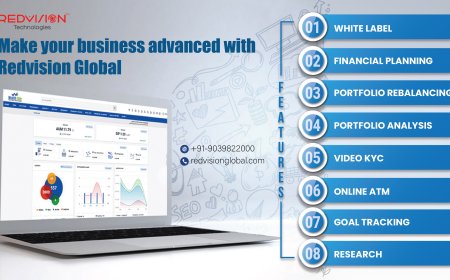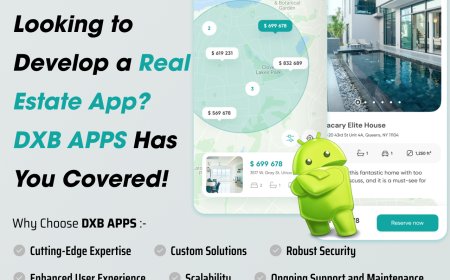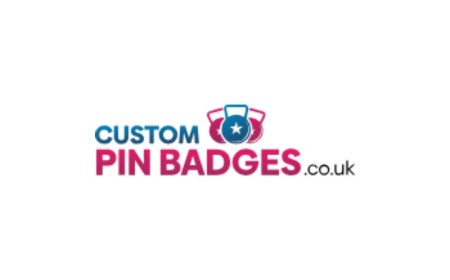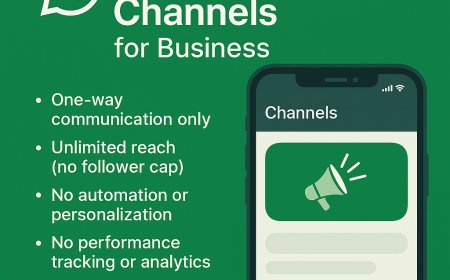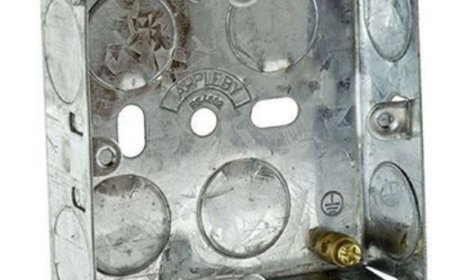Healthcare Software Development Solutions That Drive Digital Transformation
Explore healthcare software development solutions that drive digital transformation, streamline processes, and improve patient care and operational efficiency.

The healthcare industry is rapidly embracing digital transformation. What once relied heavily on manual processes, paper records, and in-person visits is now evolving into a smart, connected, and patient-centric ecosystem. At the heart of this change lies healthcare software development solutions. These solutions are not just about technologythey are about improving the quality of care, enhancing patient engagement, streamlining operations, and making the entire healthcare process more efficient.
From hospitals and clinics to diagnostic labs and telemedicine providers, every healthcare organization is realizing the power of customized software solutions. They are turning to digital tools not only to stay relevant but also to serve patients better in a world where convenience, speed, and accuracy are more important than ever.
In this blog, well explore the key healthcare software development solutions that are powering digital transformation and how they are helping healthcare providers improve services, save time, reduce errors, and ultimately offer better care to their patients.
Understanding Digital Transformation in Healthcare
Digital transformation in healthcare refers to the use of advanced technologies to change how healthcare is delivered and experienced. It includes everything from digital record-keeping and mobile health apps to AI diagnostics and telemedicine. The goal is to improve health outcomes while making healthcare services faster, more efficient, and more personalized.
Its not just about using digital tools; its about changing the way healthcare systems operate. It means shifting from reactive care to proactive care, from paper-based workflows to automated systems, and from disconnected departments to fully integrated platforms.
Healthcare software development plays a crucial role in making this transformation possible.
Electronic Health Record (EHR) Systems
Centralized Patient Information
One of the most impactful software solutions in healthcare is the Electronic Health Record (EHR) system. It allows hospitals and clinics to store, manage, and access patient data in a centralized digital format. EHRs replace paper files and make it easier for doctors, nurses, and staff to retrieve a patients complete medical history with just a few clicks.
Improved Communication
When multiple departments in a hospital or multiple providers are involved in patient care, EHRs ensure that everyone has access to the same information. This leads to fewer mistakes, quicker decisions, and better coordination.
Real-Time Updates
Doctors can update records in real time during consultations or after procedures. This allows for more accurate and timely documentation, leading to better patient outcomes.
Telemedicine and Remote Care Platforms
Accessible Healthcare Anytime, Anywhere
Telemedicine platforms have become a game-changer, especially in the wake of global health crises. They allow doctors and patients to connect through video calls, audio chats, or secure messagingno matter the location. This is particularly useful for patients in rural areas or those who cant visit clinics easily.
Saves Time and Resources
Remote consultations reduce the pressure on clinics and hospitals, saving time for both doctors and patients. It also lowers transportation costs and minimizes unnecessary in-person visits.
Expands Reach
With telehealth software, healthcare providers can serve more patients across wider regions, expanding their services without opening physical branches.
Mobile Health (mHealth) Applications
Health at Your Fingertips
Mobile health apps allow users to track their fitness, monitor chronic conditions, schedule appointments, receive medication reminders, and even consult with doctors. These apps empower patients to take control of their health.
Personalized Experiences
Through AI and machine learning, mHealth apps can offer personalized health tips, diet plans, or exercise routines based on user behavior and health data. This personalization improves patient engagement and encourages healthier lifestyles.
Real-Time Monitoring
Apps can be integrated with wearable devices to send real-time health data like heart rate, sleep patterns, or glucose levels to doctors. This enables proactive care and early detection of issues.
Hospital Management Systems
Efficient Administration
Hospital Management Systems (HMS) automate tasks like patient registration, bed management, billing, staff scheduling, and inventory control. This reduces paperwork, minimizes human errors, and improves operational efficiency.
Better Resource Allocation
With real-time data and dashboards, hospital administrators can make informed decisions about resource distribution, staffing, and patient flow. This ensures smoother operations and better patient experiences.
Enhanced Patient Care
An efficient hospital system means doctors spend more time with patients instead of doing administrative work. This leads to better diagnosis, improved treatment, and higher patient satisfaction.
AI-Powered Diagnostic Tools
Faster, More Accurate Diagnoses
Artificial intelligence is being used to analyze scans, blood tests, and patient symptoms to assist doctors in making faster and more accurate diagnoses. AI doesnt replace doctors, but it acts as a smart assistant, helping them identify issues that may otherwise be missed.
Predictive Analytics
AI tools can also predict potential health risks based on past data, helping doctors take preventive actions before problems become serious. This leads to early intervention and reduced treatment costs.
Decision Support
By processing thousands of medical journals, case studies, and research papers, AI can provide suggestions and treatment options for complex cases, supporting doctors in critical decisions.
Healthcare CRM Systems
Stronger Patient Relationships
Customer Relationship Management (CRM) systems designed for healthcare help manage patient interactions, feedback, communication, and engagement strategies. They help hospitals build trust and loyalty by delivering timely, personalized service.
Automated Follow-Ups
CRMs can automatically remind patients about upcoming checkups, vaccinations, or test results. This keeps patients informed and encourages them to stay involved in their treatment plans.
Better Marketing and Outreach
Healthcare CRMs also support targeted campaigns, letting providers reach out to specific patient groups with relevant health tips, promotions, or updates.
Read more:How Healthcare Software Development Consultation Improves ROI?
Data Security and Compliance Software
Protecting Patient Data
With the rise in cyberattacks and data breaches, security is a top concern. Healthcare software must be built with advanced encryption, access control, and secure storage to protect sensitive patient data.
Ensuring Compliance
Healthcare providers must comply with regulations like HIPAA (in the US), GDPR (in Europe), and others. Custom security solutions ensure that all software follows legal guidelines, helping organizations avoid fines and legal issues.
Cloud-Based Healthcare Solutions
Scalability and Flexibility
Cloud-based healthcare software allows data to be stored securely online, enabling access from anywhere. These systems are highly scalable, meaning you can easily expand as your healthcare business grows.
Reduced IT Costs
Instead of investing heavily in physical servers and infrastructure, cloud solutions offer a more affordable and flexible alternative. They also simplify maintenance, backups, and updates.
Collaboration Across Locations
Healthcare providers with multiple branches can share data seamlessly through cloud platforms, improving coordination and standardizing care across locations.
Integration with Wearable Technology and IoT Devices
Real-Time Data Collection
Smartwatches, fitness bands, blood pressure monitors, and glucose trackers can all send data directly to healthcare systems. This creates a continuous stream of information that doctors can use to monitor patients remotely.
Better Chronic Disease Management
Patients with long-term conditions like diabetes or heart disease benefit greatly from regular monitoring. Doctors can adjust treatment plans based on real-time data, improving outcomes and reducing complications.
Preventive Care
With enough data, systems can alert patients and doctors to warning signs, enabling preventive action before a health issue escalates.
Custom Software for Specialized Services
Tailored to Your Needs
Every healthcare organization has unique requirements. Custom software solutions are built to match specific workflows, services, and goals. Whether it's a dental clinic needing appointment booking software or a lab requiring a sample tracking system, custom development ensures the right fit.
Future-Proof Solutions
Custom software is easier to update, scale, and integrate with future tools. It grows with your business, ensuring long-term value and reduced costs over time.
Conclusion
Digital transformation in healthcare is no longer optionalits a necessity. From smarter hospital management and patient engagement to predictive diagnostics and mobile health, healthcare software development solutions are redefining how care is delivered and experienced. These innovations are not only making life easier for doctors and staff but also improving patient outcomes in ways that were once thought impossible.
At the core of these advancements is the effort and expertise of a reliable clone app development company that understands the unique needs of the healthcare industry. These companies design smart, secure, and scalable solutions that fuel digital transformation and help healthcare organizations stay ahead of the curve. In a world where technology and healthcare are becoming more connected every day, choosing the right software solutions is the key to offering better care, building trust, and achieving long-term success.
Frequently Asked Questions
What are the most important types of healthcare software?
Some of the key types include Electronic Health Records (EHR), telemedicine platforms, hospital management systems, mobile health apps, and AI-powered diagnostic tools.
How does healthcare software improve patient engagement?
It allows patients to access medical records, schedule appointments, receive reminders, and communicate with doctors, which makes them feel more involved in their treatment.
Why is data security important in healthcare software?
Patient data is highly sensitive and needs to be protected from breaches. Secure software ensures compliance with regulations and builds trust with users.
Can small clinics also benefit from healthcare software solutions?
Yes, healthcare software can be customized to fit the needs of small clinics. It improves efficiency, reduces manual work, and enhances patient care regardless of the size of the facility.
How do wearable devices contribute to digital healthcare?
Wearables collect real-time health data, which doctors can use to monitor patients remotely, manage chronic diseases, and take preventive measures when needed.















